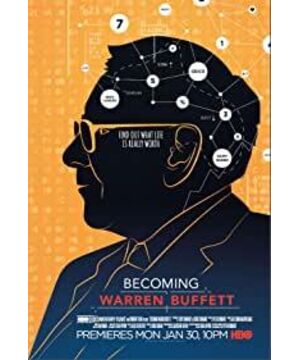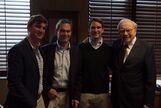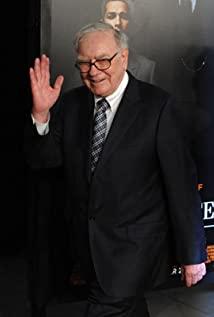Life Experience: Stage 1: Pregnancy 1. Birth: 1930, born in Omaha. 2. Unemployment (Father Interlude): In 1931, my father, a stock trader, lost his job and established his own company. Buffett has this to say about his father: "I admire him for everything. The best gift I have is the father I was born with. He thinks a necessary quality in a person is to know why you are doing what you are doing." 2. Motivation: When he was 7 years old, he read a book "1000 Ways to Get $1000", which inspired his desire to have "more than 5 cents pocket money" and started working. Jobs include selling Coca-Cola, chewing gum, and delivering newspapers. 3. Moving: Moving to Washington at the age of 12-13 made Buffett restless, got poor grades in school and took pleasure in teasing his teachers. 4. Headache (mother episode): A strong woman, she is very good at taking care of her family and external performance, but she is obviously a little irritable with her children. Buffett commented: "She gave a different kind of love than her father." It was ambiguous, but his embarrassed expression was enough to show his small dissatisfaction with his mother. 5. Leaving school: Buffett graduated from high school at the age of 16 and started buying stocks at this point. After that, graduated from the University of Nebraska. Later, after being rejected by Harvard Business School, he wrote a letter to Professor Dodd and was admitted to Columbia University. 6. Rules: I learned two rules from Graham: first, don't lose money; second, don't forget the first. This led him to his early theory - "picking cigarette butts" (buy in a recession, sell in a boom. No matter how bad the company is, how bad the management is). 7. In love: After becoming a trader, met Suzy, her sister's roommate. After that, the two got married and had three children, Susie, Howie, and Pete. Later, she turned Buffett's Republican political stance to a Democratic one. 8. Training: Buffett, who can't speak in public, took Dale Carnegie's class. Buffett said: "If I hadn't taken this course, my life would have been completely different." So he hung the Carnegie certificate on the wall, but did not hang the bachelor's and master's certificates. 9. Return: In 1956, returned to Omaha and established his first partnership. During these six years, he has demonstrated his knowledge of various companies and his digital talent. 10. Shipbuilding: First purchase of Berkshire Hathaway, a textile company, in 1961. After that, he got angry because of the extremely low quotation, so he bought the stock. In 1965, took over the company and replaced the management. Afterwards, Buffett called it "extremely stupid." 11. Companion: Meet Charlie Munger, get the "value investing theory", and later develop into the more mature "moat theory". Stage 2: Feitian 12. At the helm: In 1969, the chaos in the investment world led him to close the partnership and become chairman of Berkshire Hathaway. During this period, the office was always the same 25 people and never changed. 13. Comments: Children commented on him like this: "He doesn't easily resonate with people on an emotional level. He's there, but he always stays upstairs by himself and reads books." Bill Gates commented on him: "Art, the universe, He doesn't care about these things, but his perception of people and businesses, I really want to have one-fifth of it." Susie commented: "Being physically close to him doesn't mean being with him, which is why I'm going to learn to own my life." 14. Leaving: Suzy thinks a lot of money should be given away, Buffett doesn't. So Susie left Omaha and moved to San Francisco, finding her friend Astrid to take care of Buffett. Since then, Astrid and Buffett have lived in Omaha until now. 15. Take-off: Buffett entered the insurance industry and the postal newspaper industry with his talent and character. Stage 3: Fall 16. Crisis: In 1991, Buffett invested in the investment industry he attacked - Solomon Brothers. Shortly after the investment, Solomon was caught trading in illegal long-term bonds, which left Buffett with a shaky reputation and $150 billion in debt. Buffett took responsibility publicly at this critical juncture, and the Treasury Department's subsequent decision to support the Solomon Brothers helped Buffett get through it. 17. Cancer: Susie was diagnosed with oral cancer. Fortunately, nothing happened after the operation. In 2004, Susie suffered a stroke and died. Stage 4: Restart 18. Charity: In 2006, Buffett donated most of his wealth to the Gates Charitable Foundation, and 15% of his wealth to the charitable foundation of his children and ex-wife. 19. Remarried: In 2006, on his birthday, Buffett married Astrid. "Life Experience" Summary: Buffett's Nobles: His Dad--Noble Personal Qualities Carnegie--Public Speaking Ability Graham--Early Investment Theory Charlie--Mature Investment Theory Susie--Strong Family Support Personal Qualities: 1 .Frugal: Prepare three cups with $2.61, $2.95, and $3.17 each morning. If the market is good that day, take $3.17 for breakfast, if not, take $2.61. 2. Smart: Extremely sensitive to numbers, even in old age, he can remember numbers like "Omaha population in 1930" that he saw in his early years. 3. Focus: When you are interested in something, you will collect various materials to read (usually books), and then understand it. 4. Loneliness: immersed in his own world, the words of his children and his wife show that they cannot feel his love. 5. Responsibility: To stand up when the Solomon Brothers are in crisis. Investing Artifact: The Moody's Handbook
View more about Becoming Warren Buffett reviews









